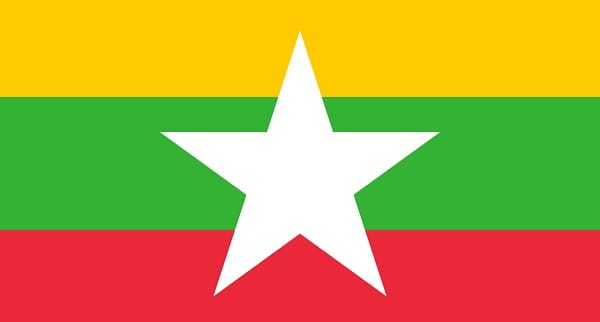Myanmar has hit new speed bumps on its road to liberalisation in recent weeks – from renewed clashes with ethnic-Han rebels near the border with China, which culminated last week in the Myanmar Air Force mistakenly striking Chinese territory – killing four Chinese civilians and wounding nine, provoking an angry response from Beijing. Meanwhile, students in Yangon are continuing to protest a new education law despite efforts to break up their rallies. The United Nations’ Special Rapporteur on Myanmar has also delivered a report to the Human Rights Council, and many in Myanmar are unhappy with her findings.
Kokang clashes and China-Myanmar relations
Last week, the Myanmar Air Force mistakenly bombed a sugarcane farm across the border in Yunnan, killing four Chinese civilians and wounding nine, provoking an angry response from China. The Myanmar military is currently fighting ethnic-Han Chinese rebels in the Kokang region, in the northern Shan State, which borders China’s Yunnan Province. Some in Myanmar have accused China of backing the rebels, though China denies this.
The situation has the potential to damage bilateral relations between Myanmar and China. An estimated 60,000 people to date have fled across the border from Myanmar, seeking refuge in China. Beyond the impact on bilateral ties, there is also the possibility that the renewed fighting in the Kokang region could drag in other ethnic guerrilla groups, further spreading the violence. Some observers say this is already happening.
Interestingly, in a break from traditional suspicion of the armed forces, domestic opinion has rallied around Myanmar’s army – at least in this situation, the military is being viewed as playing its role as guardian of Myanmar’s sovereignty.
Student protests
Separately, this month has also seen renewed student protests in Yangon over a new education law. Earlier in March, there were violent clashes between students and counter-protestors who tried to break up the rallies. Critics claim the red-armband wearing civilians who clashed with students were acting on behalf of the government. Local media is being loudly critical of the crackdown on protesters, arguing that it is this sort of escalation that presaged the 1988 uprising in Myanmar and the violence that followed. The students have begun to win support from other members of the public, with factory workers also threatening to join the protests.
UN Special Rapporteur reports to Human Rights Council
In her first address to the United Nations Human Rights Council on 16 March, Ms. Yanghee Lee, Special Rapporteur on Myanmar, highlighted recent positive developments in Myanmar, but also noted worrying signs of backtracking on key human rights issues: there are “areas of risk and the numerous challenges that must be addressed rapidly before they undermine the successes achieved so far”.
But not everyone in Myanmar has welcomed her scrutiny – Ms. Lee also noted that some in the Government and other non-government nationalists, such as the prominent Buddhist monk Ashin Wirathu, have criticised her findings – suggesting that her visit “could leave the people of Myanmar with discord, distrust and incitement”. However, the very fact that debates are taking place over these issues – not just at the international level, but even in Myanmar’s domestic media – are itself signs of progress.




